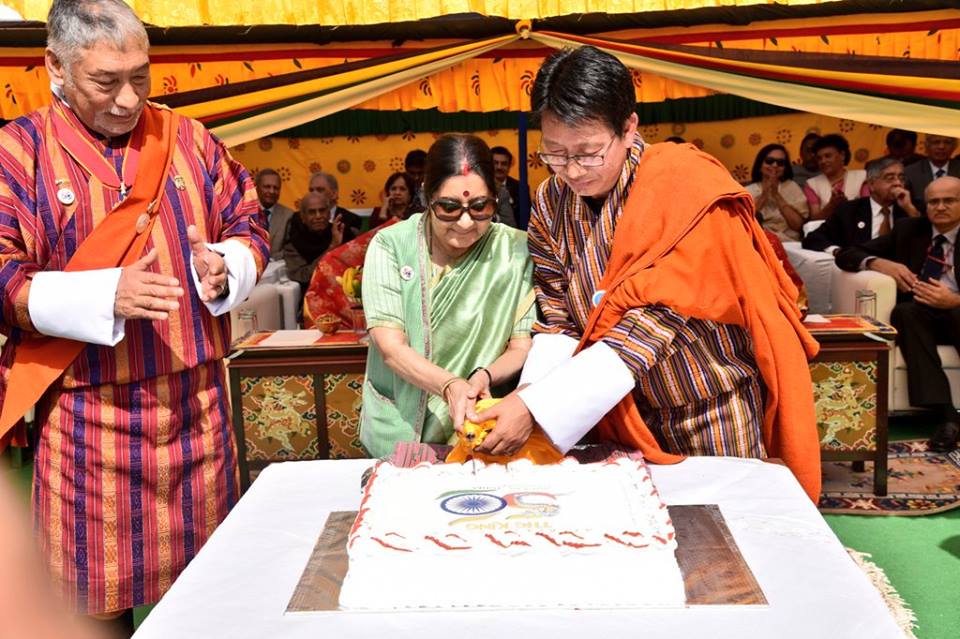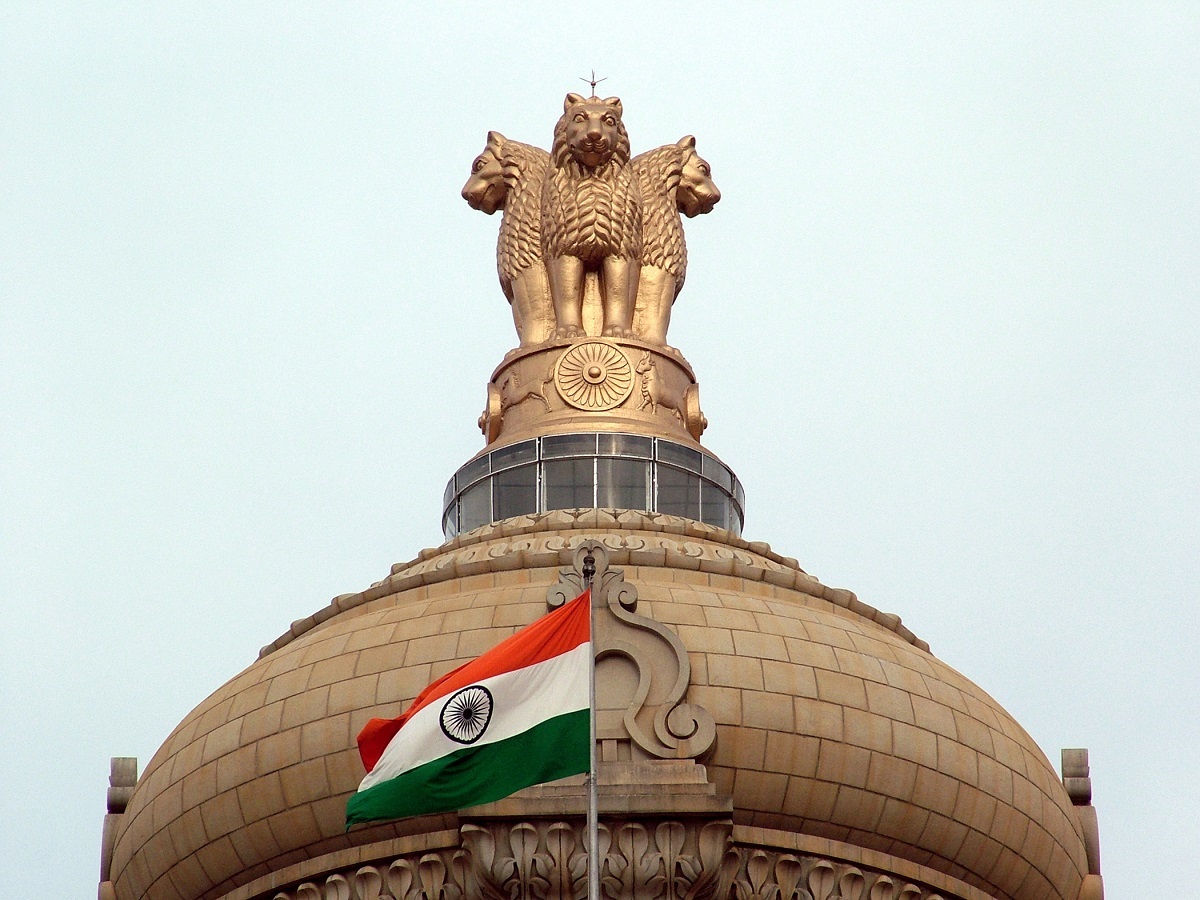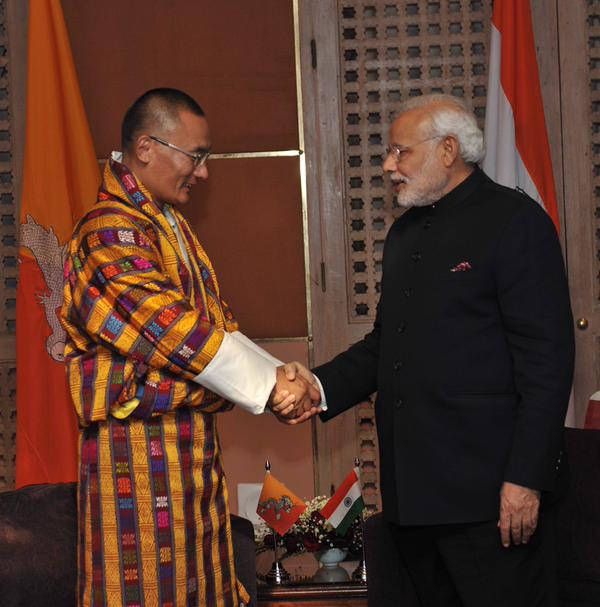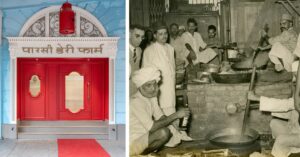50 Years of Bhutan-India Ties: 7 Times We Were Each Others’ Best Allies
As we celebrate half a century of India and Bhutan relations, let's look back at how the two countries have helped each other grow!

It is no surprise that India and Bhutan have had strong diplomatic ties for decades. In fact, the relations between the two have been termed as a “special relationship,” a phrase used to describe countries which have exceptionally strong diplomatic ties. The year 2018 marks 50 years of friendship between the two nations.
As the External Affairs ministers of both countries once again renewed the commitment to advancing their “exemplary ties” for mutual benefit, let us look back on times where India and Bhutan have proved to be friends, in the most genuine sense!
1. Bhutan — the largest beneficiary of India’s foreign aid
Among the other countries that receive aid from India, Bhutan is the biggest beneficiary. In the 2012-2013 fiscal report, India’s contribution to Bhutan totalled up to 600 million USD. Over the years, it steadily increased to total 985 million USD, in 2015-2016.
The Bhutanese government was also able to secure aid packages, such as the “economic stimulus package,” instigated to boost Bhutan’s slowing economy.

This aid has been useful in powering several projects in Bhutan, including hydropower plants, of which India operates three, and three more are set to be constructed. The electricity generated from these plants has even been exported to India, especially during the summer months.
2. India — Bhutan’s largest trading partner
The two countries currently operate a free trade regime. Subsequently, most of Bhutan’s exports go to India, and its imports come from India. In 2016, Bhutan exported goods worth Rs 3205 crore, while imports received from India amounted to Rs 5529 crore.
One of Bhutan’s biggest exports to India is hydroelectricity, which makes up one-third of total exports. Apart from that, minerals, cement, dolomite, and even cardamom are sent to India. According to Embassy of India, Bhutan even sells off-season vegetables in the neighbouring Indian towns.
3. When Bhutan became one of the first countries to recognise India’s independence
In 1910 Bhutan became a protectorate of British India, meaning that while it existed as a separate entity, much of its foreign policy, economy and defence was controlled by the British.
Ties between the two nations were therefore put in place long before India became an independent nation.

When India declared independence in 1947, Bhutan was among the first nations to recognise it. Since then, the relationship between the countries has become stronger, especially because Bhutan has a historically tense relationship with China.
4. When Nehru stood up for Bhutan
In 1958, India’s first Prime Minister, Jawaharlal Nehru visited Bhutan. On this journey, which was, of course, focused on strengthening bilateral ties, Nehru assured Bhutan of its continued assistance, stating that any offence committed against Bhutan would be seen as an offence against India.
This was at a time when Bhutan was not a protectorate and was still warmly welcomed by the country. In terms of military assistance, India sends a military training team to help train the Royal Bhutanese Army, and forces are generally cooperative with each other.
You may also like: VIDEO: North-East India Rail Links That Every Traveller Will Look Forward To
5. When Modi visit chose to visit Bhutan first after he was elected to office
In 2014, Prime Minister Modi selected Bhutan as his first official foreign visit. At the time of his visit, it had been six years since an Indian prime minister had set foot in Bhutanese soil — the last official visit was by former PM Manmohan Singh in 2008.
The trip itself renewed the bond between the countries, and India promised its continued aid.

Scholarships to Bhutanese students from India was set to double, while Bhutan agreed to higher hydropower targets, and expansion of bilateral trade was discussed extensively.
6. Operation All Clear
India had been facing problems posed by Assamese separatist groups for many years. In 1990, the country launched operations, Rhino and Bajrang. The pressure exerted on these “rebel” groups eventually led to many shifting their base to Bhutan.
Once India was aware that operations by the separatist groups were still taking place within Bhutan, it began applying diplomatic pressure, offering to aid Bhutan in removing the camps set up on Bhutanese soil.
Bhutan initially pursued a round of peace talks with the groups, however, while they agreed to close down some of their camps, it was later revealed that they had merely moved to another location, and were continuing their operations. It was then that they launched Operation All Clear, in 2003. It was the first operation ever conducted by the Royal Bhutanese Army. The militant groups were evicted from the camps, and many of the rebels surrendered.
7. The friendship treaty between the two nations– a brief history
The first Treaty of Friendship was signed between the countries in 1949. It called for peace between the nations and a non-interference policy on internal affairs.
The treaty also addressed aspects of free trade and extradition.

In 2007 the treaty was re-negotiated, and provisions were included to encourage Bhutan’s sovereignty, abolishing the need to take India’s guidance on foreign policy. Trade issues were discussed, and India agreed to develop and import a minimum of 10,000 megawatts of electricity from Bhutan by 2021.
Much of these ties stem from the culture shared by the two countries. Bhutan has proved to be a steadfast ally and has, on more than one occasion, demonstrated its respect for India. While relations may have been strained at times, India-Bhutan ties have always been significant to both countries, and they continue to be a valuable asset to each other.
Like this story? Or have something to share?
Write to us: [email protected]
Connect with us on Facebook and Twitter.
NEW: Click here to get positive news on WhatsApp!
This story made me
- 97
- 121
- 89
- 167
Tell Us More
We bring stories straight from the heart of India, to inspire millions and create a wave of impact. Our positive movement is growing bigger everyday, and we would love for you to join it.
Please contribute whatever you can, every little penny helps our team in bringing you more stories that support dreams and spread hope.



















